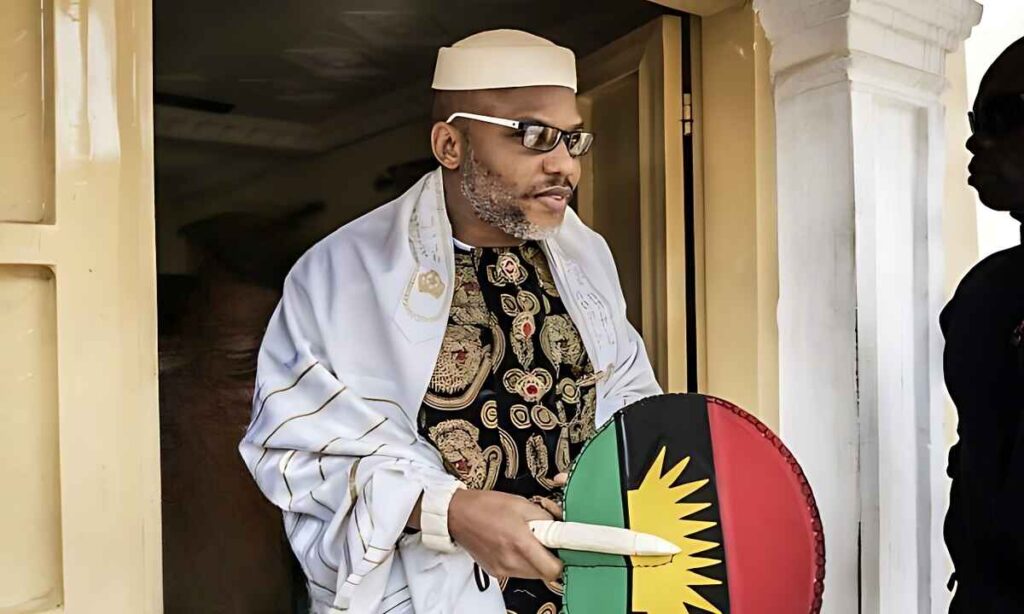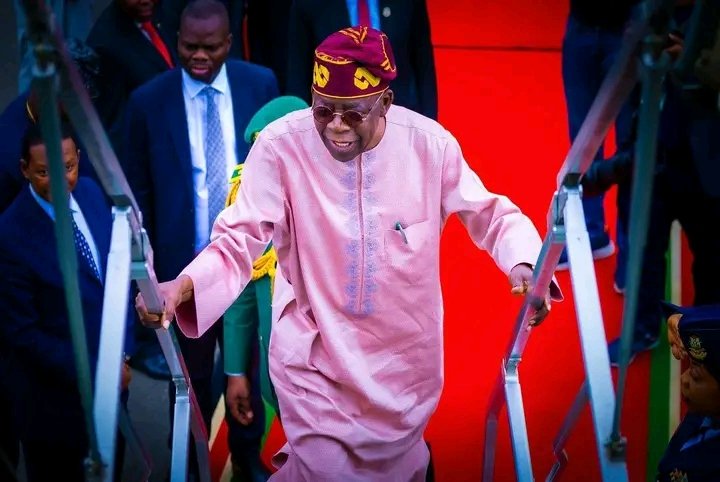
Federal prosecutors close arguments against Nnamdi Kanu as defence prepares a no-case submission.
ABUJA — The Federal Government of Nigeria has officially closed its case against Mazi Nnamdi Kanu, leader of the Indigenous People of Biafra (IPOB), following the conclusion of its final witness testimony at the Federal High Court in Abuja.
The case, which has attracted both domestic and international attention, now shifts to a critical phase, as the defence team prepares a no-case submission.
Senior Advocate of Nigeria, Adegboyega Awomolo, who led the prosecution, announced the closure on Thursday, stating that all five of the government’s witnesses had concluded their testimonies against the IPOB leader.
The development marks a pivotal moment in the case against Nnamdi Kanu, who has been in detention since June 2021.
Case Against Nnamdi Kanu Reaches Key Turning Point
Lead defence counsel, Kanu Agabi (SAN), responded by confirming the intention to file a no-case submission, arguing that the government has failed to establish a prima facie case against his client.
According to Mr. Aloy Ejimakor, Kanu’s special legal adviser, the court granted the defence 14 days to submit its written argument, with an additional 14 days allotted for the prosecution’s reply.
“Today, the Federal Republic of Nigeria closed its case against Mazi Nnamdi Kanu. The Court granted the defence 14 days to file its written address on a no-case submission, and 14 days to the prosecution to respond,” Ejimakor wrote on X (formerly Twitter), shortly after the hearing.
Justice James Omotosho adjourned the matter to July 18, 2025, for further proceedings.
Legal Arguments Define the Future of the Case Against Nnamdi Kanu
The case against Nnamdi Kanu stems from charges of treasonable felony and terrorism-related offences. The government alleges that Kanu’s statements and broadcasts incited violence and promoted separatist ideologies in southeastern Nigeria.
Also Read: Vehicles stolen from Nigeria recovered in Ghana, suspects apprehended fast
Kanu’s prolonged detention and trial have drawn condemnation from international rights organisations and human rights advocates, many of whom argue that the Nigerian government is using judicial means to silence dissent.
Groups such as Human Rights Watch and Amnesty International have raised concerns over the conduct of the proceedings and freedom of expression in Nigeria.
Political and Judicial Implications of the Case Against Nnamdi Kanu
Supporters of Kanu insist he is being persecuted for advocating self-determination, a right protected under African Union charters.
They also point to the failure of the Nigerian government to act on regional court rulings that previously called for Kanu’s release.
His legal team maintains that the extraordinary rendition from Kenya in 2021 was unlawful under international law.
Court Ruling on No-Case Submission Could Shape Nigeria’s Separatist focus
The case against Nnamdi Kanu, as it moves to its next phase, outcome of the no-case submission, may have far-reaching implications. Not only will it determine Kanu’s legal fate, but it could also affect the momentum and strategy of pro-Biafra campaigns.

